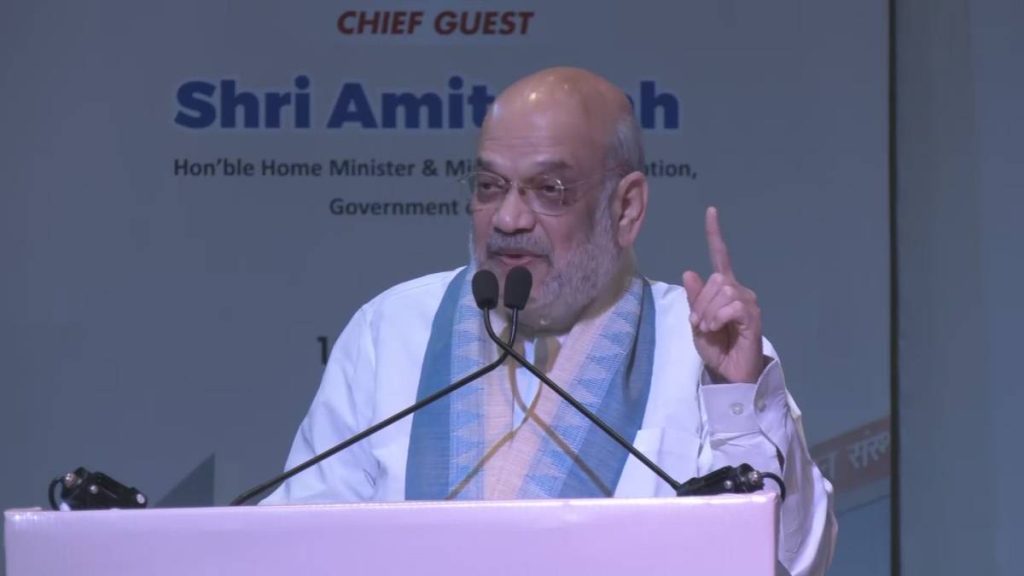Union Home Minister Amit Shah on Sunday paid homage to Syama Prasad Mookerjee on his birth anniversary, crediting him for Jammu and Kashmir’s full integration into India and lauding his lifelong dedication to the nation.
Speaking at an event in Anand, Gujarat, Shah asserted that Mookerjee’s legacy is inseparable from the history of Jammu and Kashmir, noting that without his sacrifice, the region might not have become a part of India.
“Kashmir would never have become an integral part of India without Syama Prasad Mookerjee, who gave his life for the cause,” Shah said.
Highlighting Mookerjee’s historic opposition to Article 370, which granted special status to Jammu and Kashmir, Shah recalled his famous slogan: “Ek desh mein do Vidhan, do Pradhan, aur do Nishan nahi chalenge” (One nation cannot have two constitutions, two prime ministers, and two flags).
Shah also credited Mookerjee and Swami Pranavananda with ensuring that West Bengal remained part of India after Partition.
Reflecting on Mookerjee’s political journey, Shah said: “He resigned from Jawaharlal Nehru’s Cabinet over appeasement policies and founded the Bharatiya Jana Sangh. What began with just 10 members is now the world’s largest political party with over 12 crore members.”
He described Mookerjee as a visionary patriot, educationist, and statesman, who laid the foundation for India’s industrial infrastructure while serving as the Minister for Industry and Supply in the interim government.
Born on July 6, 1901, in Calcutta, Mookerjee was the son of Sir Ashutosh Mookerjee, a distinguished judge and academic. After leaving Nehru’s Cabinet in 1950, he founded the Bharatiya Jana Sangh in 1951 — the ideological forerunner of today’s Bharatiya Janata Party (BJP).
In 1953, Mookerjee defied restrictions to enter Jammu and Kashmir and was arrested. He died in detention on June 23, 1953, under mysterious circumstances — a moment the BJP continues to commemorate as a turning point in its ideological evolution.
Shah ended his address by bowing in tribute, stating, “We are proud to follow in the footsteps of a man whose dream of national integration continues to inspire us today.”
